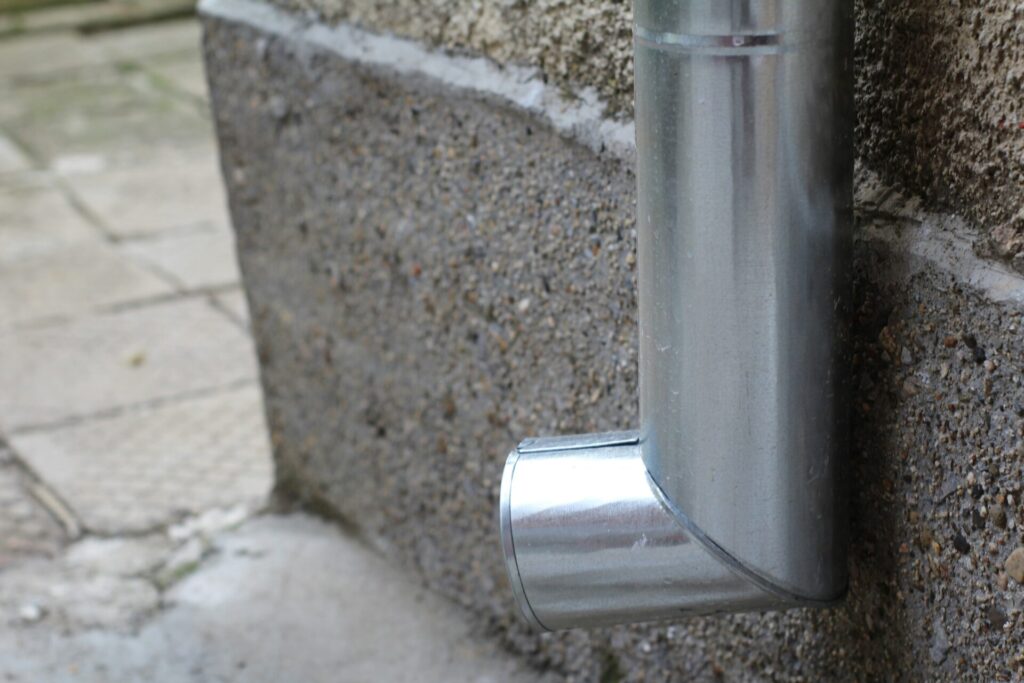When you’re in the process of buying a house, you may come across the term ‘searches’ quite often. But what exactly do ‘searches’ mean in the house sale process?
Understanding ‘Searches’ in Simple Terms

Photo by Andrew Neel on Unsplash
Imagine you’re considering buying a lovely house – maybe it’s a charming semi-detached in Daventry, complete with a picturesque garden and a cosy fireplace. Before you get too swept up in daydreaming about where to place your furniture, there’s an important step in the buying process that needs attention: ‘searches’. Now, ‘searches’ might sound a bit like detective work, and in a way, they are. They’re all about digging deep (not literally, in most cases) to uncover anything hidden about the property that you should know about before you commit to buying.
So, what do these ‘searches’ actually involve? Think of them as a series of checks and examinations carried out to ensure there are no surprises waiting for you with the property. These checks are performed by professionals – your estate agent or solicitor usually coordinates them, but they’re carried out by various authorities and specialists. Their job is to look into different aspects of the property, from legalities and environmental factors to the nitty-gritty details of its infrastructure.
But Why?
Why do these checks matter for you, the buyer? Simply put, they’re about peace of mind but are also important to your mortgage lender and their ‘Risk’. For instance, a ‘Water & Drainage Search’ will tell you whether your future home’s plumbing is up to scratch or if you’re likely to run into issues every time it rains. An ‘Environmental Search’ might reveal if the lovely park nearby was once a less-lovely industrial site, potentially affecting the ground your dream home sits on.
In essence, ‘searches’ are a vital part of the house-buying process, designed to protect you from unforeseen problems. They’re a bit like doing a thorough background check on someone before going into business with them – it’s about making sure you have all the facts so you can make the best decision for your future. And while they might seem like just another step on the path to getting your keys, they’re actually a crucial safeguard, ensuring that the only surprises you get once you’ve moved in are the good kind.
Why are ‘Searches’ Important for You?
Embarking on the journey to purchase your dream home is thrilling, yet it comes with its share of responsibilities – one of which involves understanding the significance of ‘searches’. These checks are much more than a tick-box exercise; they’re a critical layer of protection for you, the buyer.
The importance of ‘searches’ can’t be overstated. They shine a light on aspects of the property that aren’t visible to the naked eye or disclosed in the estate agent’s brochure. For example, imagine moving into your new home only to discover it’s at risk of flooding every time there’s a heavy rain. Or, worse still, learning that there are legal restrictions that prevent you from making alterations to your property. Such revelations could turn your dream home into a source of constant worry and unexpected expense.
Furthermore, ‘searches’ delve into the history and the fabric of the property. A Mining Search, for instance, could reveal if there are any old mines under your property, which is particularly crucial if you’re eyeing a property in an area known for its historical mining activities. Similarly, an Environmental Search could alert you to potential contamination on the site from previous industrial use, which could affect not only your health but also the value of your investment.
What do ‘Searches’ mean in the House Sale Process? Your Lender plays a part also
‘Searches’ also uncover the practicalities of living in your chosen home. A Water & Drainage Search will ensure that your new abode has proper access to public sewers and that you won’t be faced with unpleasant surprises during the first downpour. Meanwhile, a Land Registry Search confirms the seller’s ownership, giving you confidence in the legitimacy of your purchase.
In essence, ‘searches’ equip you with the knowledge you need to make an informed decision. They ensure that the investment you are about to make is sound, that there are no hidden legal or environmental issues, and that your future home is exactly what you envision it to be – a safe, enjoyable, and secure place for you and your loved ones. It’s about entering into one of life’s biggest commitments with your eyes wide open, ensuring that your dream home doesn’t only exist in your imagination but is a reality that brings joy for years to come.
The Different Types of ‘Searches’
So, lets get into What do ‘Searches’ mean in the House Sale Process? Diving into the nitty-gritty, let’s talk about the variety of ‘searches’ that your estate agent or solicitor might suggest during the home-buying journey. It’s a bit like picking from a menu, each option giving you insights into different aspects of the property you’re falling in love with.
Local Authority Search
First up is the Local Authority Search. This one’s crucial. It opens up the records to see if there are any planning permissions attached to the property or any local developments on the horizon that could affect your quiet Sunday mornings.
Water & Drainage

Photo by Georgi Zvezdov on Unsplash
Then, there’s the Water & Drainage Search. No one wants unexpected guests, especially if they come in the form of waterlogged gardens or, heaven forbid, homes. This search checks whether your future dream house is connected properly to the public sewer system and if there are any risks of flooding.
Environmental Search
The Environmental Search is like a window to the past, revealing if the charming plot your house sits on was once a less-charming industrial site. It’s about ensuring the ground beneath your feet is safe and sound, not just now but for the future too.
Mining

Photo by Dominik Vanyi on Unsplash
For those looking at homes in areas rich with history, a Mining Search is essential. It ensures that the only surprises in your backyard are the flowers you plant, not remnants of old mining operations.
Chancel Repair
A bit of an old-fashioned one, but still crucial in some areas, is the Chancel Search. This checks if there are any ancient liabilities on your property to fund church repairs. Sounds archaic, but it’s better to be safe than sorry.
Land Registry & Title
And finally, the Land Registry Search. It’s all about making sure the person selling you your dream home actually has the right to do so. It confirms the property’s legal boundaries, too, making sure your dream garden is indeed yours.
Each of these ‘searches’ plays a pivotal role in piecing together the full story of your prospective home, ensuring that what you see is what you get, with no unexpected plot twists.
How Long do ‘Searches’ Take?
The duration of ‘searches’ in the house buying process isn’t a one-size-fits-all affair. Just like finding the perfect home takes time, so does ensuring it’s the right one for you through these critical checks. Typically, the timeframe can swing from a brisk few days to a more drawn-out few weeks. The variability hinges on several factors, including the property’s location, its history, and how quickly local authorities and other organisations respond with the necessary information.
Imagine you’ve set your heart on a delightful property in Daventry. The local intricacies, such as the area’s historical mining background or specific environmental concerns, could mean that certain ‘searches’ might take a tad longer here than in other regions. It’s a bit like waiting for a meticulously prepared dish at a restaurant; some orders take longer than others, but the wait is often worth it for the peace of mind it brings.
Bear in mind, the complexity of the property plays a significant role too. A newer build might breeze through ‘searches’ faster than an older, character-filled house that whispers tales of yesteryears through its walls and foundations. Each property tells a different story, and ‘searches’ are there to uncover it, however long that might take.
While it might seem like a pause in your journey to securing your dream home, remember that ‘searches’ are the due diligence performed on your behalf. They’re about dotting the ‘i’s and crossing the ‘t’s, ensuring that your investment is sound and that your future home won’t spring any unwelcome surprises.
So, as you anticipate moving into your new home, patience during this stage is key. The time invested in ‘searches’ now can save you from potential headaches later on. It’s all about laying the groundwork for a secure and happy future in the home you’ve chosen.
What Happens After the ‘Searches’ are Completed?

Photo by Kelly Sikkema on Unsplash
Once the searches has been received, and every corner of your future home’s history and legal standing has been illuminated, the findings are reported to you by your solicitor. This moment marks a pivotal point in your journey to becoming a homeowner. The results of these ‘searches’ serve as a beacon, guiding the way forward and ensuring that every step taken from here on out is on firm ground.
If the ‘searches’ bring to light any concerns or issues, this is the juncture at which a deeper dive might be necessary. Perhaps an unexpected anomaly was flagged during the Environmental Search, or the Local Authority Search unveiled a planned bypass that skirts a little too close for comfort. Whatever the case, identifying these issues at this stage provides an invaluable opportunity. It allows for the exploration of solutions, negotiations on terms, or even a re-evaluation of the decision, all with the goal of safeguarding your interests and investment.
In explaining the results, your solicitor will play a key role. Translating the jargon-laden language of the reports into clear, actionable insights. It’s an opportunity for you to ask questions, seek clarifications, and understand the practical implications of the findings. Whether it’s a straightforward path to the exchange of contracts or a need for further investigations, this is the time for open dialogue and informed decision-making.
As you edge closer to calling the property your own, this phase in the process acts as both a safeguard and a springboard, setting the stage for the final steps towards homeownership with confidence and clarity.
Want to know more. Reach out to a recommended conveyancer for expert advice – Help & Advice | Conveyancing Advice | Muve | Muve
What do ‘Searches’ mean in the House Sale Process?
We hope you have learnt a bit form our blog – What do ‘Searches’ mean in the House Sale Process? Are you looking to sell your home? If you so, you need to call us on 01327 624275. You can email info
skiltonandhogghomes.co.uk.
Better still, send us your details and we will call you! Click here – Contact Us.




